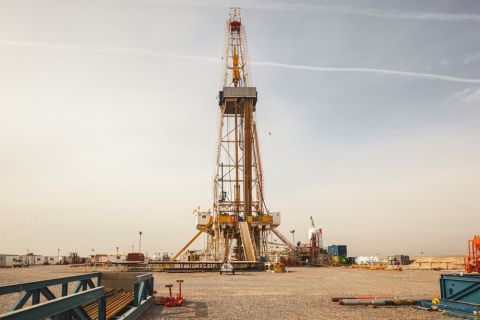The future appears promising for Mexico’s E&P sector. After the Mexican Congress agreed to open the sector, among others, to private investors, the long-awaited US-Mexico Transboundary Hydrocarbons Agreement finally has been approved by the US government. The agreement was signed Dec. 23 by US President Barack Obama as part of the Bipartisan Budget Act. This deal, which opens nearly 1.5 million acres on the US Outer Continental Shelf to joint development, has been in the works for a while. In May 2010, Obama and Felipe Calderon, who was Mexico’s president at the time, agreed to work together to develop the reservoirs, a move that would remove legal uncertainly from a western part of the Gulf of Mexico (GoM) that is currently under moratorium. Mexico’s legislators passed the legislation in April 2012. However, wrangling over a provision that requires oil and gas companies to disclose payments made to foreign governments was partly why progress stifled on the US side. Fortunately, American legislators and others involved in the debate were able to put their differences aside for this agreement that could benefit both countries. The Bureau of Ocean Energy Management estimates the area could hold up to 172 MMbbl of oil and 8.6 Bcm (304 Bcf) of natural gas. “The transboundary agreement sets clear guidelines for the development of oil and natural gas reservoirs that cross the maritime boundary. Under the agreement US companies and Pemex will be able to voluntarily enter into agreements to jointly develop those reservoirs. In the event that consensus cannot be reached, the transboundary agreement establishes the process through which US companies and Pemex can individually develop the resources on either side of the border while protecting each nation’s interests and resources,” according to a news release issued by the US Department of Interior. “The transboundary agreement also provides for joint inspection teams from the Bureau of Safety and Environmental Enforcement and the Mexican government to ensure compliance with applicable laws and regulations,” the release continued. “Relevant agencies on both sides of the boundary will review all plans for the development of transboundary reservoirs, and additional requirements may be set before development activities are allowed to begin.” After the measure gained congressional approval from US legislators, various organizations that stood on opposing sides of the disclosure provision voiced their support for the measure. “The energy production made possible by this agreement will put Americans to work and raise more revenue for the government,” API Director of Upstream and Industry Operations Erik Milito said in a news release. “American companies will now have the certainty they need to invest confidently along our maritime border with Mexico.” Exemption from oil payment disclosure was ultimately not included in the legislation, something that was applauded by Oxfam America. “As pointed out back in May, the unnecessary exemption in the House bill only served to ‘forestall quick approval of this important agreement,’” Ian Gary, Oxfam’s senior policy manager for extractive industries, said in a prepared statement. Now that this pact has been approved on both sides of the border, the two countries can push forward together toward developing hydrocarbon resources in this part of the GoM. Currently, there is no production on the Mexican side of the transboundary area. But there is production on the US side from the Perdido hub. The geology is the same, giving reason to believe Mexico’s side is highly prospective. That could be a good thing for Mexico’s declining production levels. Contact the author, Velda Addison, at vaddison@hartenergy.com.
Recommended Reading
Crescent Energy: Bigger Uinta Frac Now Making 60% More Boe
2024-05-10 - Crescent Energy also reported companywide growth in D&C speeds, while well costs have declined 10%.
Blankenship, Regens: More Demand, More M&A, More Regs
2024-05-23 - In 2024, the oil and gas industry is dealing with higher interest rates, armed conflicts in Europe and the Middle East, rising material costs, a decrease in Tier 1 acreage and new policies and laws.
The ‘Necessary Evil’ of Four-mile Laterals
2024-05-23 - While extended length lateral wells can lead to massive profits, the risk might not always be worth it. At Hart Energy’s SUPER DUG, Diamondback Energy, SLB, NOV and others weighed the risk and rewards of drilling three- and four-mile laterals.
Goodbye Manual Control: Vital Energy’s Automation Program Boosts Production
2024-07-12 - Production, ESP efficiency soared when the company automated decisions with AI at the edge.
BP and NGC Sign E&P Deal for Offshore Venezuelan Cocuina Field
2024-07-26 - BP and NGC signed a 20-year agreement to develop Venezuela’s Cocuina offshore gas field, part of the Manakin-Cocuina cross border maritime field between Venezuela and Trinidad and Tobago.





